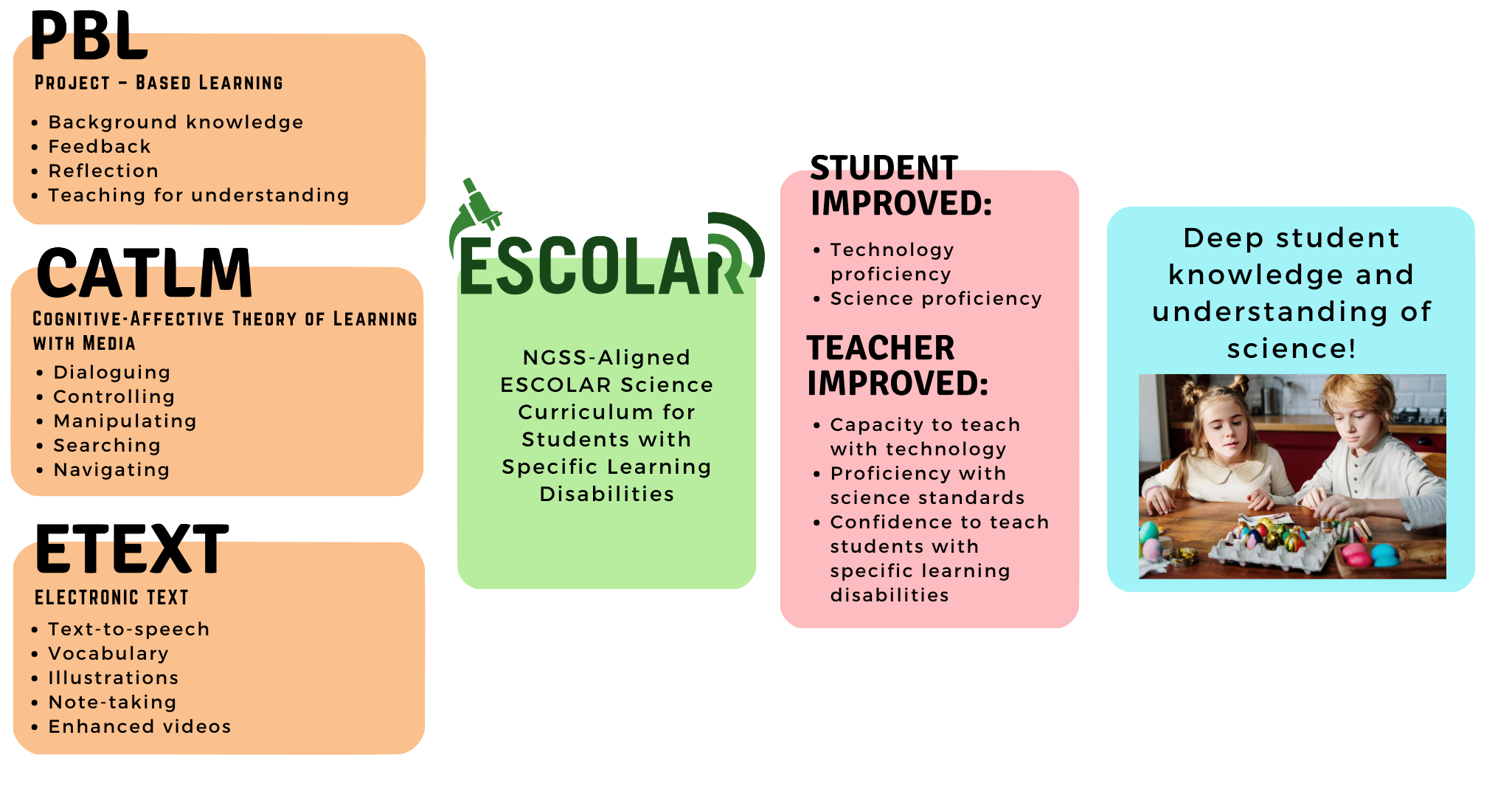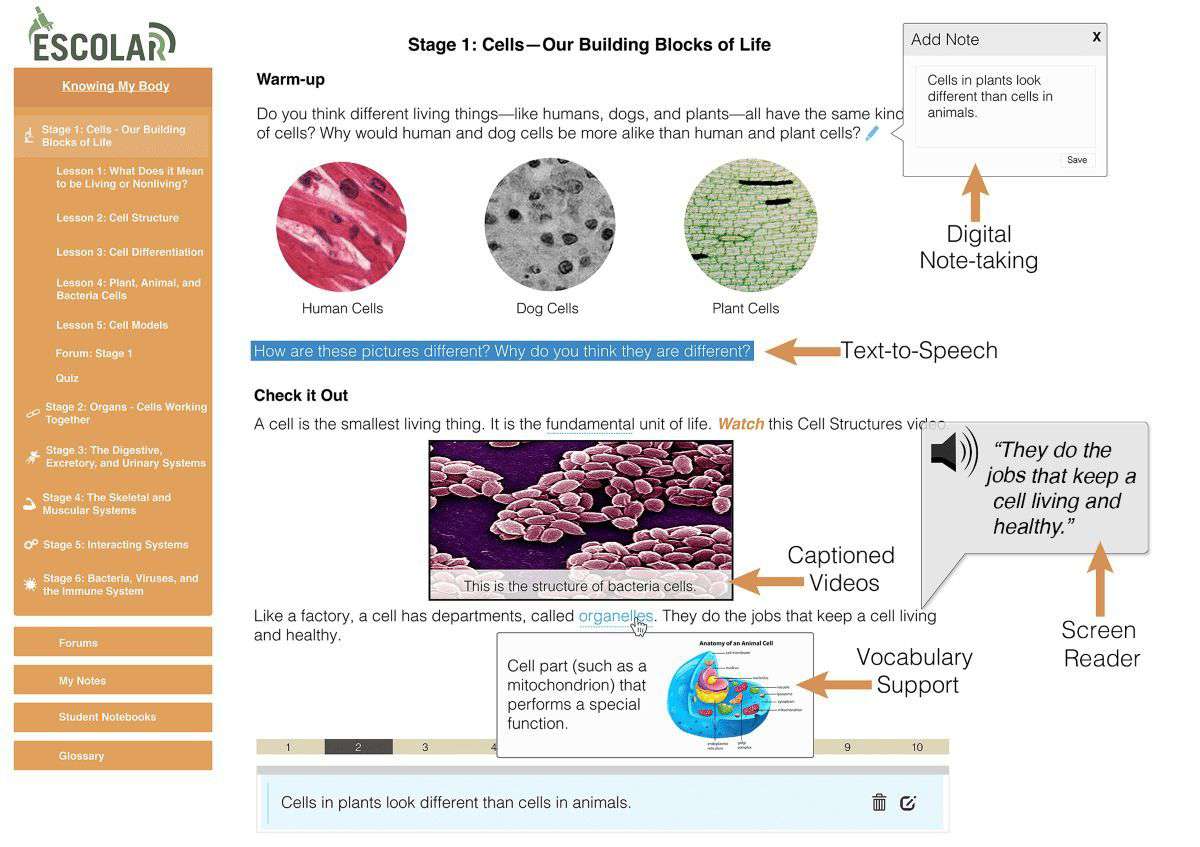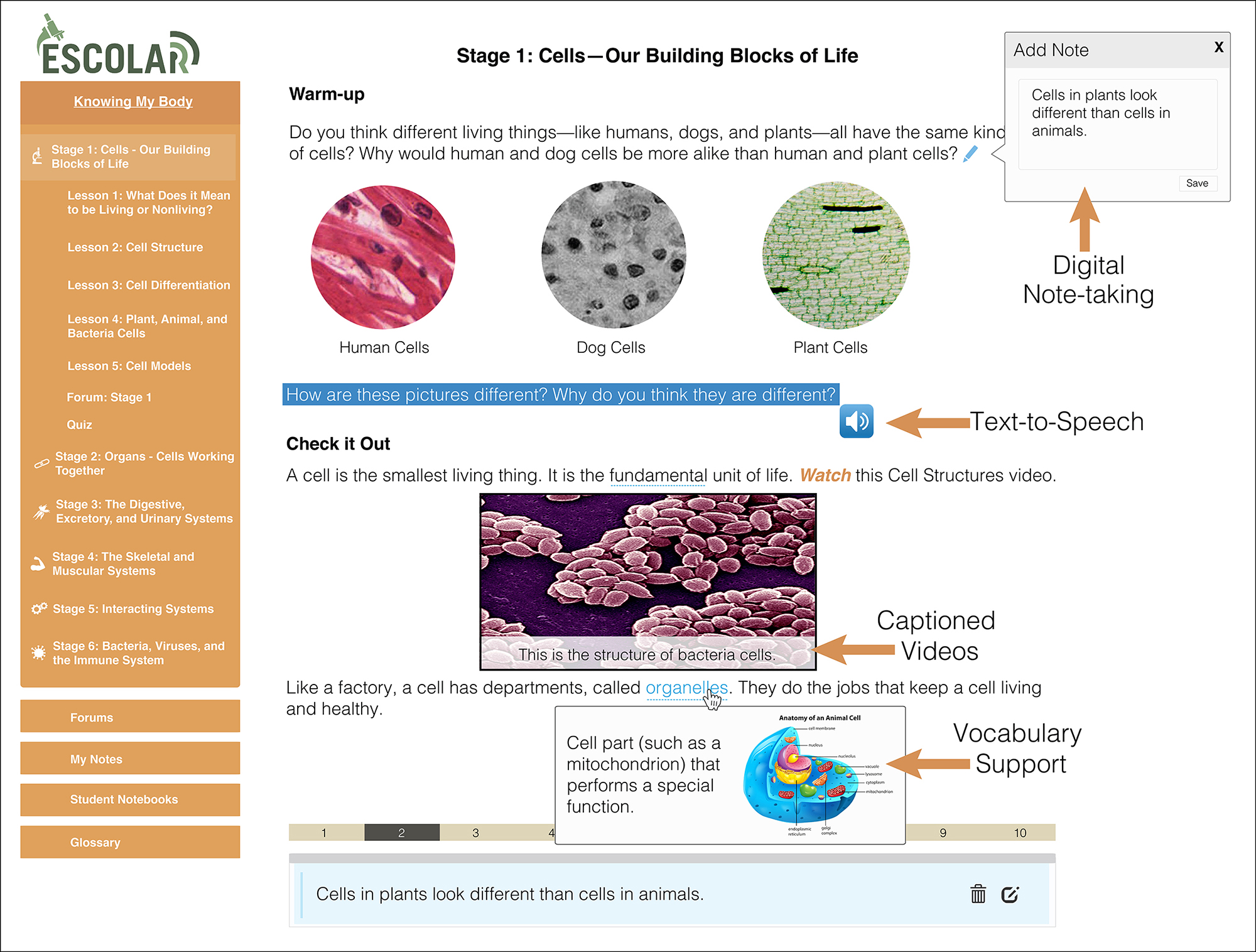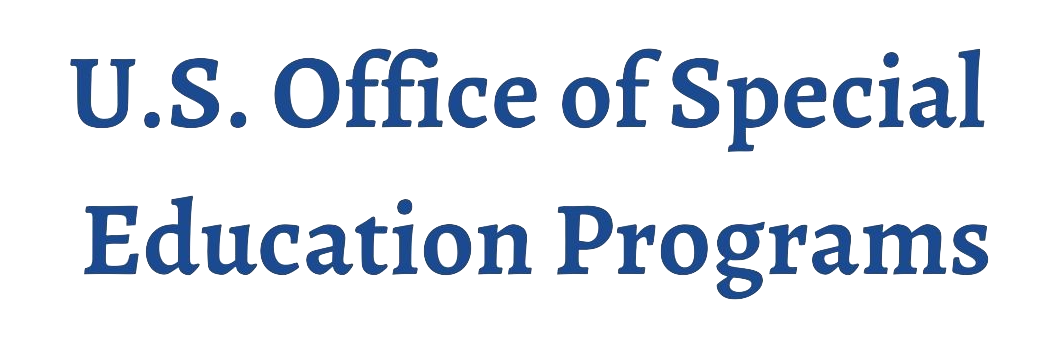Programs
Resources
Working together to educate our future STEM leaders.

Theory of Learning

eText Supports
- Digital note-taking is integrated throughout the units to allow students to answer specific questions or post their own. Student digital notes are accessible to teachers.
- Text-to-speech (TTS) lets students hear text read out loud.
- Captions are available for all project videos, activities, and games.
- Vocabulary supports give students definitions for academic or scientific words.
- Images include alt-tags so that students who have visual impairments and use screen readers can access the content.
Collaborative Online Learning (COL)Units for Middle School
Earth And Space Sciences
Life Sciences
Physical Sciences
Foundational Skills
Teacher Tools
Learn More
For free access to ESCOLAR’s online student units and teacher resources, contact
[email protected]
For five tips to start using ESCOLAR units in your classroom, click here.





